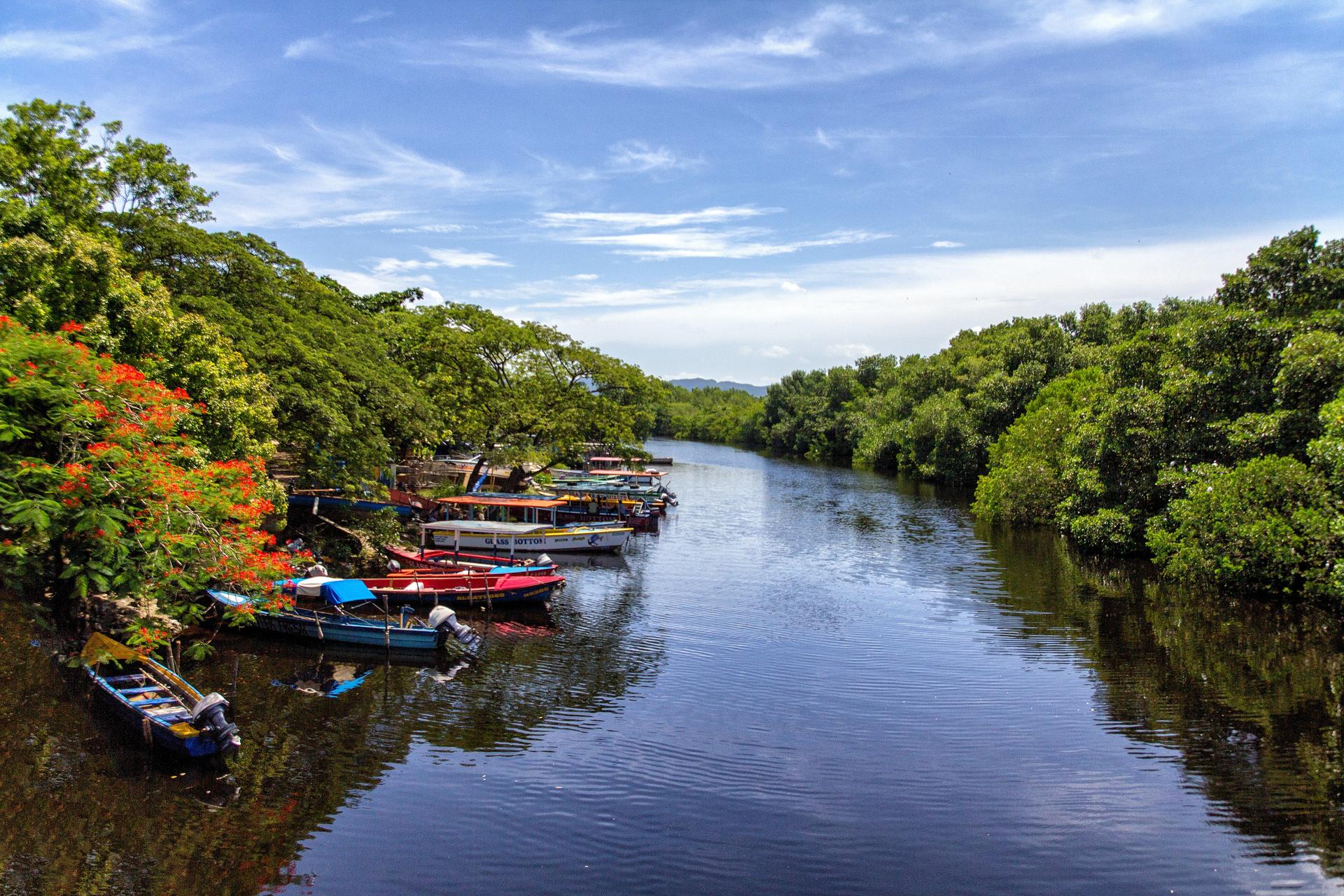Jamaica🇯🇲

Located in the Caribbean Sea, Jamaica is the third largest island in the Greater Antilles. It shares maritime borders with Haiti, Cuba, and the Cayman Islands. The country is known for its vibrant culture, reggae music, and Rastafarian movement which all originated there. Famous attractions include the UNESCO world heritage site Blue Mountains, Dunn’s River Falls and Bob Marley Museum while the capital city, Kingston, carries with it a rich heritage and culture. Jamaica's white sandy beaches, tropical climates, and lush landscapes make it a popular destination for tourists. Experiencing traditional dance forms like ska, rocksteady, dancehall and reggae performances are highly recommended when visiting.
⚠️Things you should avoid⚠️
- Avoid walking alone or exploring less touristy areas during the night.
- Avoid illegal drugs; the possession and use of drugs are severely punished in Jamaica.
- Avoid confrontational behavior or heated discussions on sensitive topics.
- Avoid beach areas that are secluded.
- Avoid illegal activities such as trading in contraband.
- Avoid displaying wealth, like wearing expensive jewelry or flashing large amounts of cash.
- Avoid drinking tap water if you have a sensitive stomach, prefer bottled water.
- Avoid poorly lit or deserted areas.
- Avoid offending local customs and traditions.
- Avoid controversial discussions about homosexuality to avoid hostility.
Overall
6
Crime 🔫
3
Jamaica has a high crime rate, primarily driven by gang-related activities. The areas of West Kingston, Mountain View, Trench Town, and Arnett Gardens are infamous for their high crime rate. Tourists are generally safe in resort areas but should exercise caution when traveling off-resort or during the night.
Terrorism 💣
8
Jamaica has a relatively low risk of terrorism. There have been no major terrorist incidents reported in the country in recent years. However, visitors are advised to remain vigilant at all times.
War ⚔️
10
Jamaica has been peaceful with no recent history of warfare or civil conflict. It maintains good relationships with its neighboring Caribbean countries.
Natural Disasters 🌊
4
Jamaica is vulnerable to several natural disasters including hurricanes, floods, and earthquakes. In 2020, Jamaica was hit by Tropical Storm Eta, which caused significant damage to infrastructure and disruption to essential services.
Medical Care 🏥
5
Jamaica has a mixed public-private healthcare system. While there are adequate medical facilities in major cities, medical services may be lacking in rural areas. It's recommended to have comprehensive travel health insurance.
Tap Water Quality 💧
7
Tap water in Jamaica is generally safe to drink as it's treated and purified. However, tourists may prefer to drink bottled water to avoid possible stomach upsets.
Disease Burden 🤒
6
Jamaica has a moderate disease burden. The Zika Virus, Dengue Fever, and Chikungunya are commonly reported diseases transmitted by mosquitoes. It's recommended to take necessary precautions to protect against mosquito bites.
Corruption 💸
3
Corruption is a significant concern in Jamaica. Despite efforts by the government to counter corruption, it continues to be a problem in many sectors and can impact foreign investments and economic development.
Safety for Women ♀️
6
While Jamaica is generally safe for women traveling alone, they should exercise caution particularly during the night or when traveling to less touristy areas. There have been reported instances of harassment.
Safety for Queer People 👬
4
Jamaica has a conservative society with low tolerance towards homosexuality. The LGBTQ+ community can face discrimination and violence. It's advised to be discreet about one's identity.
Censorship 📺
8
Jamaica enjoys high freedom of expression and low censorship. However, the media landscape is dominated by a few companies influencing the viewpoint.
Public Transportation 🚌
5
Public transportation in Jamaica can be challenging, with crowded buses and outdated infrastructure. Minivans and taxis are often used. While generally safe, tourists are advised to be cautious of their belongings.
Other useful information
🔒 How safe is it?
Jamaica is generally safe for tourists, especially in resort areas, but care should still be taken as crime rates can be high, particularly in specific areas and at night. Avoiding risky behaviors, keeping to well-lit and busy areas, and remaining vigilant can help ensure your safety.
🏰 Embassies in this Country
Various foreign embassies are located in Kingston, including those of the United States, Canada, UK, Mexico, Germany, and China.
💉 Recommended Vaccinations
Recommended vaccinations for Jamaica include Hepatitis A, Hepatitis B, Typhoid, Yellow Fever, Rabies, Meningitis, Polio, Measles, Mumps and Rubella (MMR), Tdap (Tetanus, Diphtheria, and Pertussis), Chickenpox, Shingles, Pneumonia, and Influenza.
🐍 Dangerous Animals
Jamaica is home to several dangerous animals, including the American crocodile and various species of snakes, such as the Jamaican boa. In the water, risks come from jellyfish, sea urchins, and sometimes sharks. On land, be mindful of mosquitoes transmitting diseases.
🛂 Visa Requirements
Most travelers including citizens from the US, Canada, EU, and UK do not require a visa for stays up to 90 days. Always check visa requirements before travel.
💲 Currency
The currency in Jamaica is the Jamaican dollar. Currency can be exchanged at banks, hotels, and currency exchange bureaus. ATMs are widely available.
💳 Credit Card Acceptance
Credit cards are widely accepted in larger cities and tourist areas, not so in smaller towns. Always have a small amount of cash handy.
🧑🏭 Is it possible to work and travel in this country?
There are work and travel opportunities in Jamaica, especially in the tourism sector. However, obtaining a work visa can be a lengthy process. Always check the latest information.
💵 Cost of Travel and Living
The cost of living in Jamaica is relatively low compared to many western countries. However, tourist areas can be more expensive.